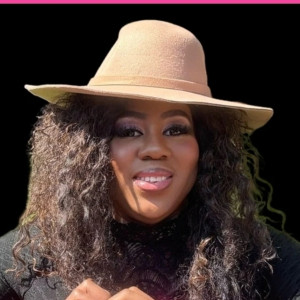In an interview, you want to make the best impression and show the interviewer that you are the right person for the job. So, when approaching the subject of salary, you don’t want to seem like you’re solely interested in the job for the financial gains. Yet, it’s important that you know how much the job is offering.
Some people would say that it’s important to not discuss salaries in the first interview as it shows that you’re only there for the paper. However, it could also be said that talking about salaries is important in interviews as it shows the expectations of both the interviewer and the interviewee.
There are no straight forward rules regarding salary-talk, but there are a few things that you can do to make the situation a little easier for yourself when asking about salary in an interview.
Have expectations in mind
Before going to the range interview, have a rough estimate in mind for how much you would like to be earning. But, please, be realistic. Think about the job that you will be doing, your previous experience for the role, your suitability for the job and your previous earnings.
Not only this, but you could also look online and see the average salaries for others in the specific field. With everything in mind, you can decide a salary range that you would expect for your work.
Timing
Wait for the appropriate moment to bring up the topic of salary. The interview should primarily focus on your qualifications, skills, and the job requirements. It's generally better to discuss salary after you have impressed the interviewer with your suitability for the role.
No one can tell you how to talk about salaries, especially because every interview is different, and you need to assess the situation before making any rash decisions. Keep an eye on your interviewer and their approach to you, does the whole situation seem very intense or is there a calmer atmosphere? Assess your own situation and you will be able to decide if the topic of money is a safe bet.

A good chance to ask about salaries would be near the end of the interview, given that it has not already been mentioned, you could ask your interviewer once they’ve asked you if you have any questions.
Just a word of warning, do ask other questions as you don’t want to seem interested in the job only for the money.
Show them who you are
If you’re applying for this job, you must already have the experience and the necessary knowledge. So, show them what you’re made of! Before even discussing money, show them that you are the right person for the job. Show your value by explaining why you are the most suitable candidate for the job and why they should hire you.
Take care to not seem arrogant or pushy yet, do be assertive because you do not want to be offered a lower salary than what you were expecting. By considering your own experience and suitability for the job, the salary offered to you (or the one that you have suggested) will be a reflection of your knowledge and skills.
Chances are that your interviewer will either tell you, or you’ll have to do the honours and bring up the dreaded topic of conversation. So, what do you do if you haven’t asked about salaries, but your employer has asked you, “What salary would you expect for this job?” ?
Before the interview, make sure you have researched the typical salary range for similar positions in your industry and location. This will help you have a realistic expectation and negotiate effectively.
Costumer service positions don't earn as much as the ones that require long education for example.

Instead of directly asking about salary, you can inquire about the complete compensation package, including benefits, bonuses, and any additional perks. This approach demonstrates that you are considering the entire package and not solely focused on salary. When raising the topic of salary, maintain a professional and respectful demeanor.
Avoid sounding demanding or overly focused on money. You can say something like, "Could we discuss the compensation package for this position? I'm interested in understanding the salary range and any additional benefits that might be offered."
Be honest
By now, you should have already discussed your skills and should already have a salary range in mind. So, if you’re ready to discuss salaries with the interviewer, then you can do so.
The interviewer may not provide an exact figure during the initial interview. Instead, they might offer a salary range or ask about your salary expectations. Be prepared to discuss your salary expectations based on your research and experience.
Know your worth and put your expected salary amount out there, but do not try and negotiate until you have formally been offered the job.
OR...
Postpone your answer
If you aren’t ready to give an answer, that’s completely fine. You can ask about the benefits offered with the job, the average salaries earned and for more information about the specific requirements of the job. This shows the interviewer that you are thinking deeply about the job and the specific requirements, you seem more interested and engaged in the conversation.
However, if you are asked again by the employer, you will need to give an answer, whether that be an estimate or a general salary range that you expect. Don’t be afraid to ask the employer what their expected range for the job either.

I wish I could give you a sure-fire way of how to talk about salaries in an interview, but the truth is, it’s not as easy as that. Every interview is different, and your approach needs to be tailored to each scenario and situation that you find yourself in. But here’s a quick summary of how to ease in the dreaded salary talk in an interview…
- Know how much you want to be earning. Be realistic.
- Go with the general vibe of the interview, if it feels right, go for it.
- Show your skills and talk about your own experience so that they know you’re worthy of the best salary.
- Be honest and be yourself.
Remember, it's essential to strike a balance between being appropriately assertive and maintaining professionalism during salary discussions.
Here's what to discuss in an interview about your career goals.

Summarise with AI:















